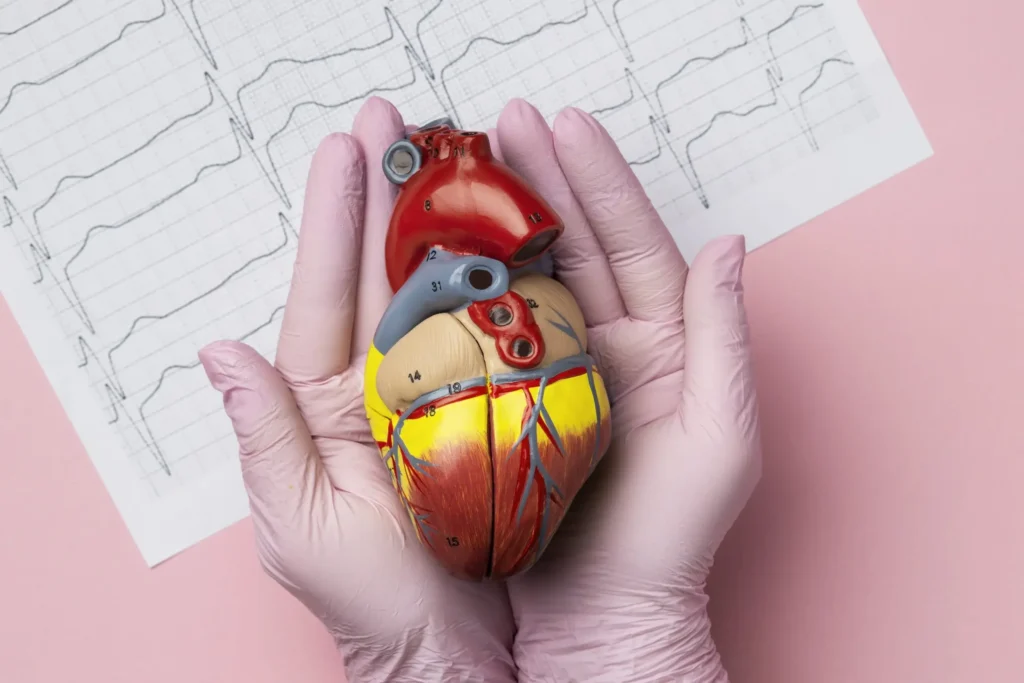Heart Diseases
Heart Specialist in Nashik
Dr. Gulshan Tolani
Heart Diseases
Heart disease, also known as cardiovascular disease, is a term used to describe a range of conditions that affect the heart and blood vessels. It is one of the leading causes of death worldwide, affecting millions of people. In this article, we will explore the different types of heart disease, their causes, common symptoms, and essential prevention strategies to promote heart health.

Types of Heart Disease:
Coronary Artery Disease (CAD):The most common type is caused by a buildup of plaque in the coronary arteries, leading to reduced blood flow to the heart.
Heart Failure:
Occurs when the heart cannot pump blood efficiently, often due to weakened heart muscles..
Arrhythmias:
Irregular heart rhythms that can lead to palpitations, dizziness, or fainting.
Valvular Heart Disease: Involves problems with heart valves, affecting blood flow within the heart.
Congenital Heart Defects:
Structural heart abnormalities present at birth.
Common Symptoms:
Shortness of Breath: Difficulty breathing during physical activity or at rest.
Fatigue: Feeling tired even with minimal exertion.
Swelling: In the legs, ankles, and feet due to fluid retention.
Palpitations: Irregular or rapid heartbeat sensations.
Dizziness or Fainting: Reduced blood flow to the brain can cause these symptoms.
Prevention and Lifestyle Tips
Engage in Regular Physical Activity: Aim for at least 150 minutes of moderate-intensity exercise per week.
Avoid Smoking and Limit Alcohol Intake: Smoking cessation significantly reduces heart disease risk.
Manage Stress: Practice relaxation techniques and engage in activities that promote mental well-being.
Control Blood Pressure and Cholesterol: Regular monitoring and appropriate management are crucial.
Maintain a Healthy Weight: Achieve and maintain a body weight within a healthy range.
Regular Medical Check-ups: Get regular check-ups and follow medical advice.
Conclusion:
Heart disease is a prevalent and serious condition, but it is largely preventable through lifestyle modifications and early detection. By understanding the causes, recognizing the symptoms, and implementing heart-healthy habits, we can significantly reduce the risk of heart disease and lead a longer, healthier life. Remember, prevention is key, and it’s never too late to start caring for your heart.


